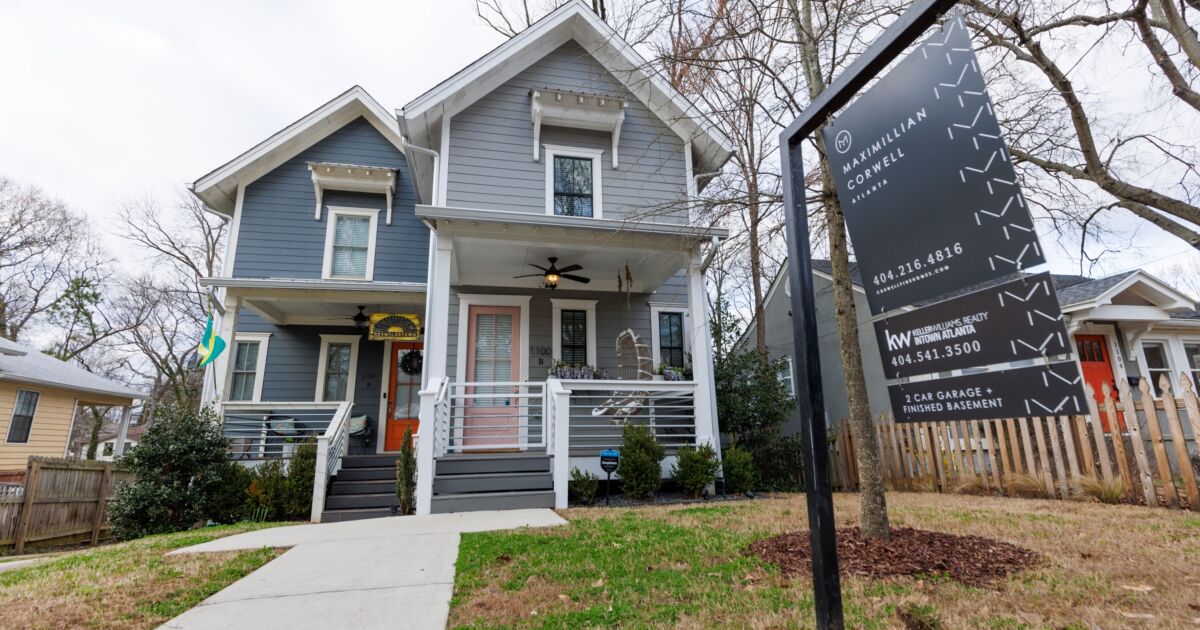
Financial pressure is building on more recent entrants to the housing market, according to a Clever Real Estate survey released Wednesday.
Nearly two-thirds or 62% of new homebuyers have struggled when it came to paying their mortgages, according to the April 12-13 survey of 1,000 Americans who bought homes in 2022 or 2023.
The number raises the question of whether the stress felt by recent purchasers is putting upward pressure on delinquency rates.
Buyers in 2022 and 2023 have had mortgage rates potentially around twice as high as what most borrowers had in the previous two years and also bought after home prices peaked, leaving them with less equity.
Home prices generally increased through the fourth quarter of 2022 when the median was $479,500, according to Census Bureau data compiled by the Federal Reserve Bank of St. Louis. However, they fell in the first quarter of this year, when the median was $436,800. The median home price hasn't been that low since the first quarter of last year, when it was $433,100.
Some indicators suggest that while financial stresses are mounting for these borrowers, they've managed to pay so far, potentially due to the persistent strength of the overall job market, and aren't overextending themselves.
The youngest segment of the market — and therefore the one most likely to have bought homes recently — Gen Z, has been contending with an increasing rise in their debt balances, but has been paying them down, according to a VantageScore study.
That study shows these borrowers have seen their average consumer-debt balance climb from levels around $150,000 before the pandemic to above $225,000 in February 2023. Their balance-to-loan ratio has fallen from above 97% to around 95% during the same period.
It's tough to see the influence of these borrowers in delinquency measures for the overall mortgage market because their presence in it is relatively small.
Annually, there were more than twice as many borrowers in 2020 and 2021 than there were in 2022, Fannie Mae numbers suggest.
The total loan count for the government-sponsored enterprises' acquisitions was nearly 5 million in 2020. It was around 4.65 million in 2021. After a runup in interest rates driven by monetary policy in 2022, the annual total was just under 1.72 million.
A small spike in overall mortgage delinquencies did materialize in Black Knight's latest report, reflecting April performance, but researchers there have said it could stem from a Sunday close for that month that tends to complicate the receipt of payments.
Clever also has seen a small increase in the delinquency rate and while it notes that while the U.S. economy is likely to do next is difficult to predict, pressure on borrowers' ability to repay is growing.
Evidence of this lies in the following survey responses: 56% of buyers added non-mortgage debt to maintain their standard of living after their purchase, 53% considered their rates relatively high and 27% said there was deterioration in their finances, according to Clever.



